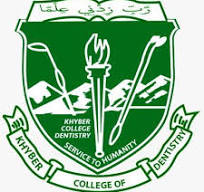THE SILENT EPIDEMIC – ADDRESSING BURNOUT IN THE DENTAL COMMUNITY
DOI:
https://doi.org/10.33279/jkcd.v15i02.932Abstract
Burnout among dental professionals is a growing concern worldwide, but in regions like Pakistan and particularly Khyber Pakhtunkhwa, it remains largely underrecognized and underreported. The dental profession demands high levels of concentration, manual dexterity, and continuous patient interaction, often in resource-limited and high-stress environments. In KP’s public and teaching hospitals, dentists face large patient loads, outdated equipment, and administrative burdens that significantly contribute to emotional exhaustion and depersonalization key hallmarks of professional burnout. Coupled with the stigma around mental health and limited institutional support, this silent crisis continues to erode the wellbeing of our dental workforce.
The implications of burnout go beyond individual suffering. Studies have shown that it directly impacts quality of care, patient safety, and even academic productivity in teaching institutions. In the context of Khyber Pakhtunkhwa, where dental services are stretched thin across urban and rural divides, the consequences of an overburdened and disengaged dental workforce could lead to long-term public health repercussions. Young dentists, house officers, and postgraduates in particular often face unrealistic expectations, poor mentorship, and job insecurity all of which increase susceptibility to early career burnout.
It is imperative that academic institutions, hospital administrators, and policymakers prioritize the mental health of dental professionals. Preventive strategies such as workload redistribution, mental health literacy programs, institutional counselling support, and protected academic time must be urgently introduced. Furthermore, integrating burnout screening and resilience training into dental curricula could empower future professionals to recognize and manage stress proactively. If left unaddressed, burnout will continue to undermine not only the profession but also the trust and care we owe our communities.
Downloads
Published
How to Cite
Issue
Section
License
Copyright (c) 2025 Farhad Ali Khattak

This work is licensed under a Creative Commons Attribution-NonCommercial 4.0 International License.
You are free to:
- Share — copy and redistribute the material in any medium or format
- Adapt — remix, transform, and build upon the material
- The licensor cannot revoke these freedoms as long as you follow the license terms.
Under the following terms:
- Attribution — You must give appropriate credit , provide a link to the license, and indicate if changes were made . You may do so in any reasonable manner, but not in any way that suggests the licensor endorses you or your use.
- NonCommercial — You may not use the material for commercial purposes .
- No additional restrictions — You may not apply legal terms or technological measures that legally restrict others from doing anything the license permits.










